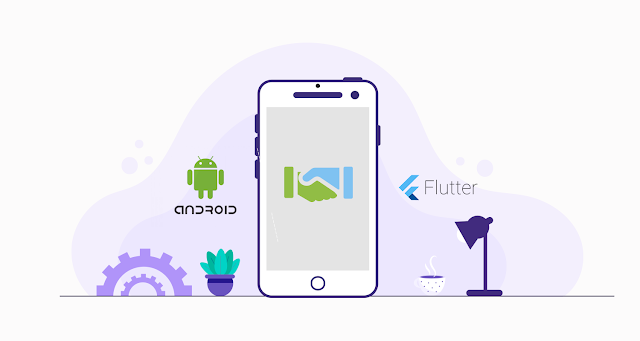Flutter has been recently considered the future of mobile app development. Owing to its incredible capability of developing cross-platform applications with having the overwhelming support of Native app development. Especially for enterprise-level applications, Flutter is an apt choice to develop an extensive OS of applications including Android, iOS, Mac, Linux, Windows, and Web-based apps.
But the question is why Flutter is the futuristic choice of Android app development and for other operating systems.
In this blog, we will find out the apt reasons for Flutter to bring the ideal one to take the torch ahead to build an extensive variety of feature-rich apps.
What is Flutter?
Flutter is a cross-platform open-source UI software development kit. It is preferred to develop applications for different operating systems on a single-based codebase. Flutter app development offers sophisticated features, cross-platform user experience, and uninterrupted app performance on different OS.
It is the first-ever app development framework that comes packed with versatile capabilities, a robust environment, and a complete ecosystem. In fact, Google created the Flutter keeping in the mind the future of enterprise app development and trends in mind.
You can hire Flutter developers to build native apps for multiple platforms using the same codebase and reduce time, effort, and cost. One of the reasons, Flutter stands tall against other frameworks is due to providing the speed of 120fps on mobile devices along with the updating rate of 120Hz.
How Flutter is Better than Other Frameworks?
There is a number of reasons that state the fact that Flutter has an edge over other available frameworks and is the future of Android app development.
1. High-Level Performance
One of the reasons, Android developers prefer the Flutter framework is because of its high performance as compared to the React Native.
React Native framework utilizes the key UI building blocks that allow JavaScript to run on different threads. And, a bridge is used to facilitate communication among the native modules.
On the other hand, Flutter combines everything from UI modules and app logic into machine code. All this makes the Android app development process and performance go fast and hassle-free.
2. Easy to Set Up
Setting up the Flutter framework is simple due to backed by the support of core Google developers. It also comes packed with a comprehensive set of documentation that helps developers to at different development levels of the project. It further helps to deal swiftly with any issue by referring to the detailed documents. Additionally, in-depth and well-articulated Flutter documents further help developers to deal with any challenge within the project.
3. Leading Coding Effort
Flutter ensures a faster development process owing to its usage of Dart programming language. It focuses on usability and ease of use factors that help to fasten up the development process. Also, Google uses Dart as the programming language that runs across multiple ranges of devices like desktop, tablet, laptop, smartphone, etc.
4. Custom UI Widgets
You can rely on Flutter for a sophisticated level of Android app development for the enterprise that comes with an object-oriented approach. It also comes with a variety of UI features to make customized changes in the design as per the business requirements. Also, Flutter offers manifold widget options using different layouts to make specific changes in a hassle-free manner.
Another thing to notice is that Flutter widgets can be wrapped into one another as per the requirement. And, create a variety of functions irrespective of the platform it is meant for.
5. Support of Firebase
Flutter framework is fully supported by Firebase from Google that helps in launching mobile apps at a much faster rate. Also, backed by cloud storage, Flutter further adds value to it.
So, Firebase supports the Flutter app development to speed up server configuration that can save a lot of time and resources. It further helps the developers to develop the app from the backend and automate a few of the processes to scale up the overall development process.
6. Less Testing Load
It is a matter of great concern for developers to thoroughly test the application before the release. Necessary is to remove all the irregularities, bugs, and errors, well in advance. But with Flutter, you can expect a fair amount of improvement in the enterprise apps without needing much testing. Flutter helps to achieve a better quality product by developing multiple native apps on one single codebase that ensures quality, saves development cost, less testing, and time.
Wrapping Up
Flutter is a viable option for enterprise app development, especially based on the Android operating system. Certainly, it is the future of application development due to offering fast performance, less testing, extensive libraries, and optimum maintenance and support.
If you are looking for Flutter app development services, then get in touch with Mobibiz. It is a leading mobile app development company having special expertise in developing Flutter apps for several operating systems.






